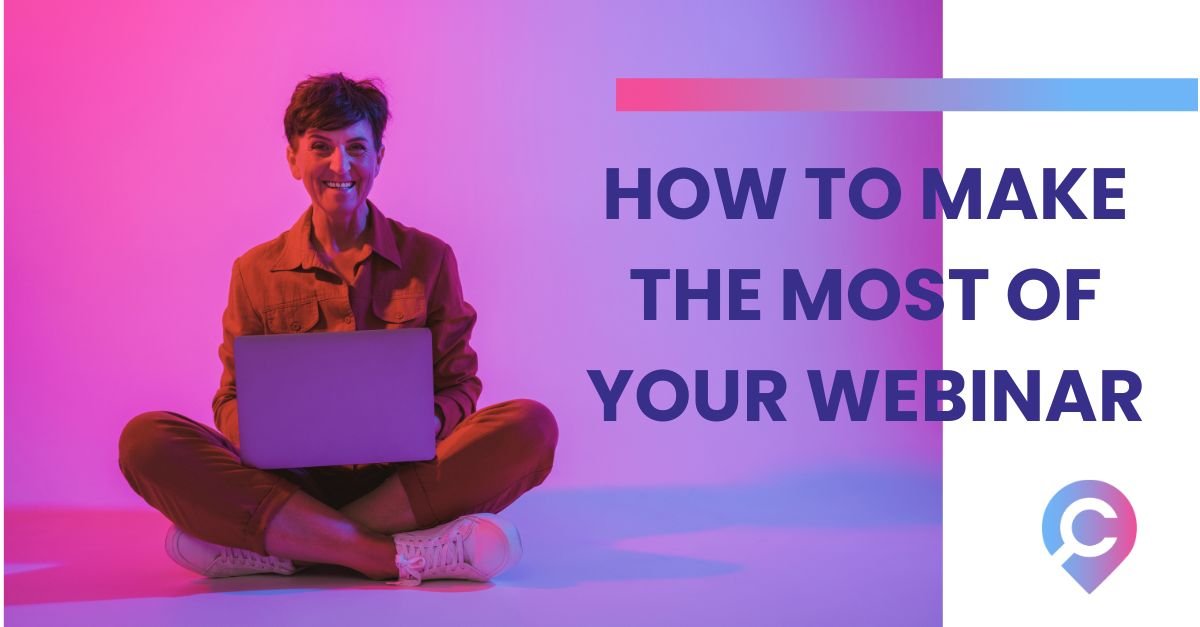How to Host a Successful Webinar
It used to be the case that getting a large group of people in one room to convey information to them was difficult. You would have to factor in the location of the event, timings, audience limit and availability of hosts amongst a whole variety of other considerations. Nowadays, thanks to technological advancements, the increase in the use of webinars is staggering.
Why You Should Consider Hosting a Webinar
Using webinars can offer various benefits depending on your goals and the nature of your content. Here is a list of reasons as to why you might want to consider hosting a webinar;
Cost-Effective
The costs of hosting an online webinar are significantly lower than if you were to organise an in-person event. There are no venue, insurance or catering costs which means that anyone can join without having to worry about travel expenses, leading to you reaching a wider audience as well as those from various backgrounds. For example, people from low socioeconomic backgrounds might not be able to attend in-person events due to travel costs.
2. Engagement and Interaction
You may think that an in-person event would provide more opportunity for audience engagement but actually, with Webinars, you are few and far between! With most platforms, participants are able to ask questions, chat with each other, answer polls, take quizzes and more.
3. Recording Ability
Webinars provide the opportunity to record the event, which you can then upload to your own channels so that participants can refer back to it for information or watch it for the first time if they were absent from the live event. It could also be used for content marketing, training materials or social media.
4. Global Reach
Webinars enable you to reach an international audience without the need for travel. This can be especially advantageous if there is scope in your company to hire into international offices.
5. Analytics and Data Collection
Having analytics that can help you understand participant behaviour, engagement levels and other valuable data is an extremely useful tool that can be used to increase your future marketing and webinar strategy.
6. Networking
Despite not being in-person, Webinars still offer participants the chance to engage with the hosts through chat features and Q&A sessions. Some participants may even feel more confident in an online setting! This networking aspect can be valuable for building a community around your brand.
10 Top Tips for a Successful Webinar
It’s no myth that public speaking can sometimes be a bit daunting. Even if you host your event online, rather than in person, it can still be scary seeing the number of people watching you reach the hundreds. At Careermap, we have put together 10 top tips to ensure you have a successful webinar experience;
Define Your Goals
You should have a clear view of what you would like to gain from your webinar. Whether it’s lead generation, educating your audience, gaining job applications or promoting a product/service, having a secured desirable outcome will help you with planning your webinar content.
2. Set a Date and Time
Consider who your audience is and what time they are most likely to be able to log on to attend your webinar. For example, if you are targeting college/6th form students for apprenticeship opportunities then you may want to organise your webinar to be at a time that is not during the school day unless you have strong connections with schools and colleges, where they will join the events during classroom time.
3. Gather a Team of People
Don’t just rely on one person to deliver the whole webinar. The most successful events will have a team of dedicated people to present different sections. For example, for a “National Apprenticeship Week” webinar it would be preferable to have an early careers manager, a newly hired apprentice and an employee who successfully went through the apprentice scheme - this way your audience can gain valuable insights and varied opinions and experiences.
4. Be Prepared
Don’t expect that you can rock up to your webinar without practising, the audience can always tell! We recommend gathering your hosts a few times prior to the event to ensure everyone is well-versed in their topic of conversation. A lot of people choose to utilise PowerPoint, videos and scripts which can all be really useful on the day to keep your webinar timely and organised. Additionally, make sure you carry out relevant technical tests beforehand to ensure everything is working as it should be and familiarise yourself with the platform you are using so you can deal with nay technical issues, should they arise.
5. Promote your Webinar
Don’t forget that the promotion of your webinar highly contributes to the number of people who attend and thus the success rate. Use email campaigns, social media platforms, newsletters, your website and other various online tools to promote your event. Don’t forget, if you book an event through Careermap, we market all of the events on your behalf so you can focus on converting attendees into applicants.
6. Engage your Audience
Make sure that your webinar doesn’t just consist of a few people reading words off a slide for one hour. Engage with your audience! Ask them questions, give them polls, and show them videos. Keep your webinar dynamic and interesting so you don’t lose the participants’ attention.
7. Look and Be Professional
This probably goes without saying but be sure to stay professional in your appearance, setting and delivery. This webinar will be the first encounter of your company with a lot of your audience so you want to be sure to leave a good impression.
8. Follow-up and Provide Resources
After your webinar, you can go even further to engage your audience:
Send a follow-up email thanking them for their attendance
Provide relevant resources and a recording of the event
Include a “call to action” to increase future engagement
9. Gather Feedback
In your follow-up email, you may want to consider sending a feedback form to ask questions such as “What did you enjoy about the event?” or “How could this event be improved?”Use this information to influence and improve future webinars.
10. Analyse, Evaluate, Improve
Most webinar events will provide statistical information. Spend some time after your webinar reviewing this data to refine your strategy for future webinars.
Ready to take the stress out of planning and marketing? Connect with us today! With a track record of hosting over 400+ successful webinars in the past four years, we're eager to collaborate with you to make yours a standout success.




